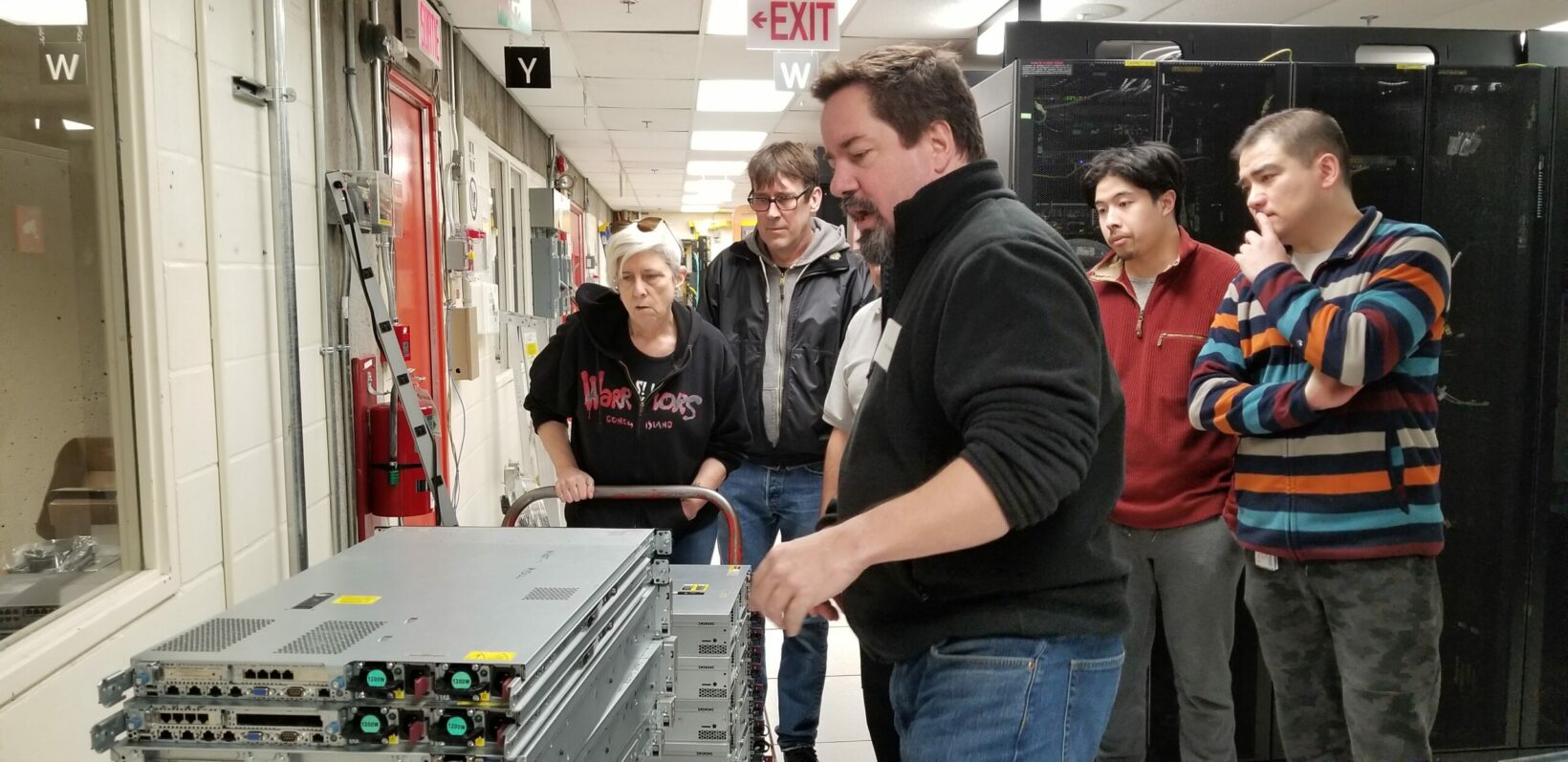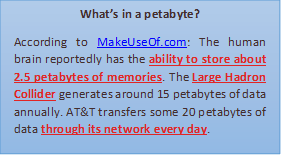
Source: Ludmer Centre for Neuroinformatics and Mental Health
There’s an underlying link between cancer and brain research, and it’s not what you think.

Cancer Computer recently donated and installed a high-throughput compute cluster at McGill University to support the Ludmer Centre for Neuroinformatics & Mental Health. The previously used servers were donated to Cancer Computer by corporate partners upgrading their own equipment and will help advance omics-based research in both brain health and cancer. The Ludmer Centre will now have extra computing power of 2.8 million core hours per year, which can help an additional 56 researchers with typical resource allocations.
At first glance, oncology and neuroscience might seem to be strange bedfellows, in particular because research published in 2018 confirmed what researchers have long noted: there is an inverse correlation between the odds of getting cancer and of getting a neurodegenerative disease. If you are afflicted by one, you are less likely to develop the other.
However, as research tools (e.g., imaging, DNA metalation) advance and new fields of scientific inquiry open up (e.g., epigenetics) so too has our understanding of the interconnectedness of the human body, from the brain to the gut to our vital organs. Consequently, research is increasingly shifting from a focus on physical symptoms to identifying the underlying biological processes that lead to these symptoms. The end goal is to prevent or intervene just as a disease process commences.
New technologies now allow neuroscientists and cancer researchers, among other research domains, to engage in multimodal and multi-disciplinary research projects that generate large, complex datasets –big-data– the analysis of which can generate petabyte-sized data files that most researchers cannot store, let alone process locally. Consequently, researchers are increasing collaborating with computer scientists to improve storage and automate the processing, manipulation, analysis, and visualisation of this multimodal and multi-omics data.
Once developed, many of the tools and algorithms required to utilise and manipulate these datasets, specifically in regard to genetics, epigenetics and neuro-imagining, can be applied across multiple research domains. Computational tools designed to tackle neuroscience data are often applicable to cancer research, and vice-versa. Long recognising these cross-disciplinary synergies, the Ludmer Centre has two key researchers whose computational work already advances both neuroscience and oncology research, Dr Celia Greenwood and Dr Claudia Kleinman, at the Lady Davis Institute in the Jewish General Hospital. Their research has contributed significantly to research at the Segal Cancer Centre. Cancer Computer’s primary mission statement –Computing For The Cure– also emphasizes the need for increased computational support for research.
It is this synergy that spurred the Cancer Computer collaboration with the Ludmer Centre’s neuroinformatics pillar, the McGill Centre for Integrative Neuroscience (MCIN) located in the Montreal Neurological Institute-Hospital (The Neuro). Led by Dr Alan Evans, MCIN not only advances the development of such tools, but also integrates them into a larger informatics platform that includes a highly specialized data-management software program, LORIS, for large-scale neuroscience research projects and, via CBRAIN, multiple portals to distributed computing sites.
While McGill’s researchers will be the primary users of the new gently-used servers, other research organizations will have secondary and tertiary access to ensure the computational capacity is fully maximised. According to the lead developer for the LORIS system, Samir Das, “The expanded computational capacity will also support MCIN’s open-science mission. Experience tell us, that as we succeed in advancing tool development, more researchers will want to access the LORIS/CBRAIN infrastructure, necessitating even more computational resources. The Cancer Computer donation enables us to house data for these researchers, while providing access to our computational portals and tools.” The servers will also expand local processing capacity, specifically for those that do not have (or cannot) access to Compute Canada resources, such as MCIN’s international collaborators researching Alzheimer’s, dementia, Autism, Amyotrophic Lateral Sclerosis (ALS), and mental health, among others.
Part of McGill’s new federally funded Healthy Brains, Healthy Lives initiative, MCIN provides a neuroinformatics incubator environment through a dedicated 25-member developer team, the largest globally, and research collaborations that encompass hundreds of national and international researchers that contribute to an unprecedented tool-development pipeline. Part of a mutually reinforcing relationship, researchers and data-sharing initiatives utilizing CBRAIN and LORIS are both users as well as vital catalysts for and contributors to a dynamic tool-development process. As more researchers utilise the infrastructure, the type, complexity and breadth of CBRAIN and LORIS tools expand, drawing in new users, thereby, fuelling the demand for more services and, consequently, new tool development.
For more information about the Ludmer Centre contact info@LudmerCentre.ca or find out how to donate online – here!
October 10, 2019



